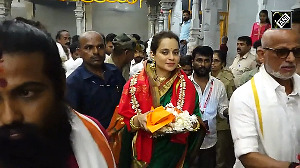A month after the tragic gurdwara shooting shook Wisconsin's peaceful Sikh community, officials at the Sikh temple are trying to figure out ways to fairly distribute the nearly six lakh dollars received in donations among families of the victims without causing any friction.
The August 5 shooting, in which six members of the Sikh community were killed, led to an outpouring of support from across the US as well as around the world. The community received nearly $500,000 (Rs 2.7 crore) to $600,000 (Rs 3.3 crore) in donations and now officials at the gurdwara want the money to be fairly distributed among those affected by the tragic incident, a report in ABC News said.
However, the officials are yet to decide if all families get equal amounts or whether the money goes to only families of those injured or killed.
Officials also face the question of whether the money should be shared with those who were in the temple at the time of the shooting and suffered emotional trauma by the incident.
"You never really know what will happen when there's money involved, but we're doing our best to safeguard against any problems," Amardeep Kaleka, who lost his father in the shooting rampage, said.
"The community has already suffered. If there's any in-fighting there will only be more suffering".
Arguments over how the relief money, collected after shootings in Colorado and at Virginia Tech, should be distributed among victims' families had raised tensions and the Sikh leaders are relying on an outside expert to figure out the fairest way to share the funds.
Last week, relatives of some of the Colorado theater shooting victims lashed out after families of the victims were given only $5,000 (Rs 2.79 lakh) each out of the more than $5 million collected.
After the Virginia Tech shooting, two family members who lost loved ones sued over how the money was distributed. The victims of the gurudwara shooting came from varied walks of life and financial backgrounds, including a 41-year-old mother of two who was her family's primary breadwinner to an injured person who did not have health insurance.
"No one wants to be callous, but there are finite resources," said Kaleka. "Some hard decisions will have to be made".
Temple officials have asked a victims' attorney and claims expert Ken Feinberg to help distribute the money. Feinberg had helped direct victims' payments after the September 11 terrorist attacks, the Gulf Coast oil spill in 2010 and the Virginia Tech shooting in 2007.
Feinberg recommends that the temple act swiftly and give the families of the dead equal amounts. "You would treat everyone exactly the same. All lives would be equal," Feinberg said.
"That's the only way to avoid the fairness argument. If anyone's unhappy there's an outlet for anyone who wants to litigate".
Jasjit Singh, executive director of the Sikh American Legal Defense and Education Fund, said Feinberg's recommendation may not be welcomed by some people but trying to determine how much more one life is worth than another is also difficult.
"You're in a tough spot either which way. It's very murky territory," he said.
Temple leader Kulwant Singh Dhaliwal said the process of distributing the funds could take weeks. Some victims' expenses could also be covered by federal funds, administered through the state Crime Victim Compensation Program.
The 16 people who hid in a pantry at the gurdwara for two hours when the gunfire began could receive up to $40,000 (Rs 22.3 lakh) under the programme, under which those who are wounded or suffer emotional harm in a crime can receive the amount.





 © 2025
© 2025